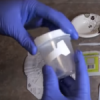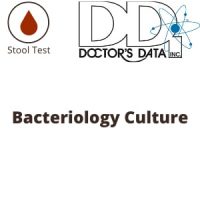Description
Clostridium is a diverse genus of bacteria, many of which are abundant and normal inhabitants of the human gastrointestinal tract (GIT). Many of the Clostridium species can have beneficial effects on the metabolism and health of the GIT in part by breakdown of polysaccharides, saccharolytic fermentation of carbohydrates to short chain fatty acids, and regulation of immune function. While non-pathogenic Clostridium species are predominantly saccharolytic, toxin-producing species tend to be strongly proteolytic. Proteolytic fermentation produces toxic metabolites such as ammonia, amines, volatile phenols and indoles which are pharmacologically active and affect a variety of physiological functions—including adverse effects in the central nervous system.
Aside from the well-established pathogenic Clostridium species such as C. botulinum, C. tetani, C. perfringens and C. difficile, other species may have yet-to-be-elucidated roles in health and disease. For example, they may be involved as mediators in the gut-brain connection in the evolution of psychiatric neurodevelopmental delay such as autism and autism spectrum disorders. Clostridium species that produce neurotoxins and potentially toxic metabolic byproducts have been reported to be more prevalent in autistic children compared to neurotypical controls—most notable were greater quantities of C. bolteae and members of the C. hystolyticum group.
Clostridia are anaerobic Gram-positive bacteria that do not grow in the more aerobic environment of the distal colon. However Clostridia produce extremely durable endospores as a means of proliferation—the spores are resistant to air, antibiotics, heat, drying and disinfectants. Doctor's Data uses growth media optimally suited for growth of Clostridium species and anaerobic culture conditions to germinate the spores to metabolically active bacteria that are sub-cultured for positive identification (speciation). If C. difficile is cultured at any level, the sample is automatically tested for all known toxigenic strains using an FDA-cleared, molecular diagnostic DNA assay at no additional charge.
Clostridia generally are resistant to antibiotics and treatment of an overgrowth of C. difficile, especially in asymptomatic carriers and infants under age two, is usually not warranted. Additionally, since plasmids have a potential role in transferring various capacities, including antibiotic resistance, from one organism to another, the use of antibiotics in the treatment of clostridia overgrowth should be considered carefully.






Reviews
There are no reviews yet.